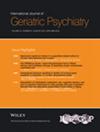Delirium in Elderly Hospitalized Patients: Analyzing Clinical and Social Determinants in a Colombian Retrospective Cohort
Abstract
Objective
This study aims to describe the clinical and social determinants associated with delirium in elderly patients hospitalized in the geriatrics department of Hospital Universitario San Ignacio (HUSI), in Bogotá, Colombia, between June 2019 and June 2022.
Methods
We conducted a retrospective analytical study. Data were extracted from the hospital's electronic medical records. The primary outcome was delirium upon admission. Exposure variables included clinical (e.g., malnutrition, dementia, oropharyngeal dysphagia) and social factors (e.g., living alone, social networks). Associations between delirium and exposure variables were assessed using a multivariate logistic regression model.
Results
The studied cohort comprised 4601 patients, mean age of 83.93 years and 56.26% were women. The prevalence of delirium upon admission was 22.39%. Key factors associated with delirium included older age (OR 1.04, 95% CI 1.01–1.06), malnutrition (OR 2.42, 95% CI 1.93–2.79), dementia (OR 2.57, 95% CI 2.02–3.38), functional impairment (OR 2.50, 95% CI 1.74–3.59), and oropharyngeal dysphagia (OR 1.49, 95% CI 1.08–1.99). Social determinants such as female sex, limited social networks, living alone, and enrollment in the subsidized health regime were not significantly associated with delirium.
Conclusion
Delirium upon admission is highly prevalent among elderly inpatients and is associated with clinical factors, particularly malnutrition, dementia, and oropharyngeal dysphagia. Although no significant associations were found between social determinants of health (SDH) and delirium in this cohort, further research in diverse healthcare settings is needed to better understand the broader impact of SDH on delirium risk.

 求助内容:
求助内容: 应助结果提醒方式:
应助结果提醒方式:


